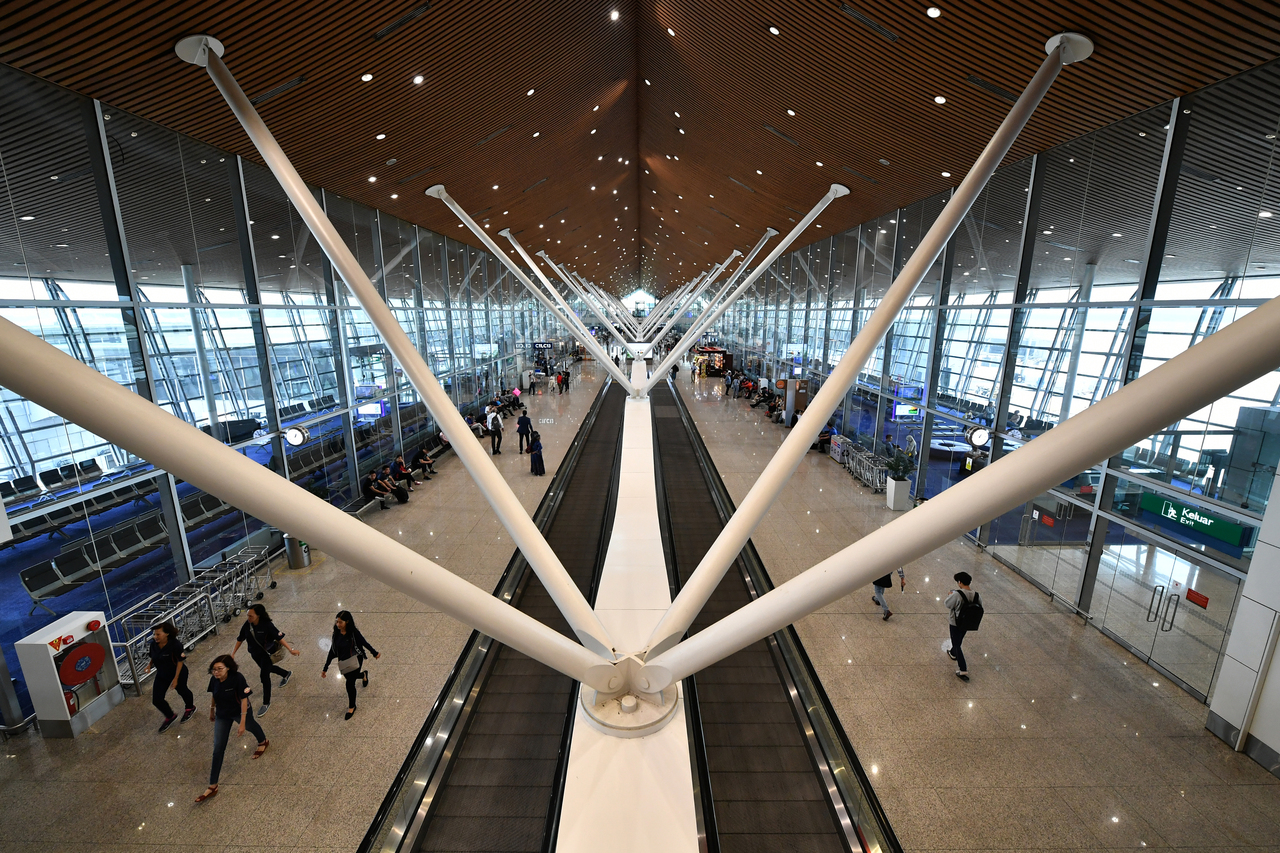Malaysians plan for overseas travel as govt hints at easing of border controls in December
Sign up now: Get insights on the biggest stories in Malaysia

Malaysian PM Ismail Sabri Yaakob hinted that the country will likely relax restrictions on overseas travel in December once 90 per cent of adults are fully vaccinated.
PHOTO: ST FILE
Follow topic:
KUALA LUMPUR - When Malaysia announced that it was looking to reopen its borders for foreign travel in December, 27-year-old Joyce Tan Mei Mei immediately started searching for the best deals.
The fashion stylist said being cooped up at home for almost two years has made her keen to travel.
"I can't wait to see the world. For now, Korea and a few European countries are on my list," she told The Straits Times.
"My extended family, who is based in the United Kingdom (UK), is also hopeful to return to Malaysia for a break. I hope this materialises soon, we miss one another very much," she added.
Ms Tan and her family are among thousands of Malaysians who are thrilled at the prospect of being allowed to travel again.
Since the start of the Covid-19 pandemic last year, Malaysia has been off-limits to both domestic and international tourists.
But on Sept 22, Prime Minister Ismail Sabri Yaakob hinted that the country will likely relax restrictions on overseas travel in December once 90 per cent of adults in the country have been fully vaccinated, as the country gears up to enter the endemic phase of Covid-19 at the end of October.
As at Thursday (Oct 7), Malaysia is 0.9 percentage points short of the target 90 per cent, with a total of 20,856,337 adults (89.1 per cent) having had both doses of a Covid-19 vaccine.
News about the likely easing of curbs has resulted in an increase in international travel inquiries, said industry players.
"A lot of Malaysian holidaymakers have been asking when they can start travelling, some have even requested quotations. They focus on three things - cost, safety and slow travel destinations ," Mr Abu Fadzil, head of operations and customer service at travel agency Asian Trails, told ST.
"It's no longer about the price but mainly what's included in a package and whether or not they really get to travel. In terms of safety, it also includes access to healthcare, how affordable it is in case of an emergency like contracting Covid-19 while holidaying," he said.
As for slow travel destinations, Mr Abu said travellers are more inclined to travel in a small private group, away from crowds. Slow travel does away with rushing around and is a more immersive experience, emphasising a connection to local people, cultures, food and music. It has become popular during the pandemic.
Indonesia, Singapore, Taiwan, Korea and Britain were among the places preferred by Malaysians, Mr Abu added.
Industry players expect international holiday bookings to jump after the official announcement of the reopening of international borders.
"The industry still expects no quarantine on arrival since vaccination should already protect travellers and Malaysians from hospitalisation. That should be the new norm, hence the vaccination," he said.
"UK and Singapore (under the Vaccinated Travel Lane) have progressed towards this direction. I understand that Malaysia would want to be extremely safe, but an idea on how they would reopen will help prepare for business," he added.
However, the government's Covid-19 Epidemiological Analysis and Strategies Task Force chairman, Professor Awang Bulgiba Awang Mahmud, said he did not think proportions of vaccinated persons should be used as the sole indicator to guide the opening of borders.
He said that the reopening of borders must be considered carefully and that Malaysia could start by having travel bubbles between vaccinated countries with low rates of infection.
"December is two months away and anything can happen between now and December. Opening up borders need to happen sooner or later but must be considered carefully," the epidemiologist told ST.
"We can have travel bubbles between vaccinated countries which have demonstrated low levels of infection for a start. Travel bubbles have to be negotiated between governments, either bilaterally or multilaterally, and many factors have to be taken into account," he added.
"These bubbles can begin to be expanded to include more countries later on. The economic benefits, the feasibility of such travel bubbles, the health risks, plans to mitigate risks and so on have to be carefully considered," he said.

